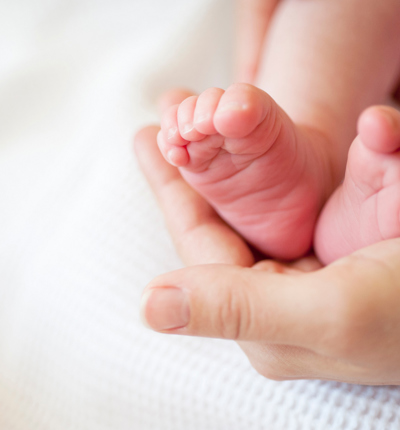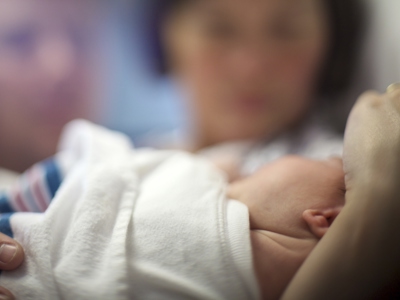
Baby died aged one week after pregnant mother’s concerns were dismissed
A baby girl died aged one week at the Homerton Hospital after her mother’s concerns about abdominal pains and reduced fetal movements were dismissed in late pregnancy by North Middlesex Hospital maternity triage unit.
Posted on 20 December 2022
When she was eventually delivered by Caesarean section, the baby, whom we have called Amy, had suffered a severe shortage of oxygen which caused a brain injury. She was transferred to a neonatal intensive care unit, but in her weakened condition she caught a serious pseudomonas infection which proved fatal.
Amy’s mother, whom we have called Kim, settled a claim against the two NHS trusts that treated her and her baby after clinical negligence lawyers at law firm Leigh Day argued that Kim should have been listened to when, as a mother in her fourth pregnancy, she raised serious concerns.
During her pregnancy, Kim was under consultant led care for a blood disorder called chronic immune thrombocytopenic purpura. Her pregnancy had appeared to be going well but during the 36th week, suddenly Kim began to suffer severe upper abdominal pain. She went to the Maternity Triage Unit at North Middlesex Hospital and was reviewed separately by two doctors but was sent home later that afternoon with instructions to return for her next routine antenatal appointment in 10 days’ time and to use analgesics in the meantime.
The symptoms continued but didn’t worsen, so Kim did not feel able to go back to the hospital with the same story before the routine appointment already booked.
On 20 August Kim went for her next consultant led antenatal clinic appointment at North Middlesex Hospital. She told staff that she hadn’t felt her baby move very much during the past two weeks and told the doctor about the abdominal pains and explained that two weeks previously she had been sent home with analgesia and told to come back today.
Kim was admitted to the Maternity Day Unit for assessment and her baby’s heart was monitored with a cardiotocograph (CTG). At 3.41pm the senior house officer noted that the CTG trace was “suspicious” and it was decided to continue CTG monitoring for at least another hour and for Kim to be transferred to the labour ward if it worsened, or to be sent home if it improved.
At 4.15pm a registrar examined the CTG trace and decided that Kim should be transferred to the labour ward for a caesarean section. However, Kim was not taken to theatre for another four hours, at 8.20pm and, even then, Amy was not delivered until 9.07pm.
She was in a poor condition and was not breathing easily, with APGAR scores of six at one minute, seven at five minutes and seven at 10 minutes.
In such circumstances, with plenty of notice that the baby was likely to be delivered in a poor condition, a paediatric team would have been expected to be on stand-by in the delivery room ready, if necessary, to begin resuscitation. However the team did not arrive until about four minutes after Amy was born. It then took three attempts over seven more minutes before Amy was successfully intubated, by which time, she had started fitting.
Amy was transferred to the neonatal intensive care unit (NICU) at North Middlesex Hospital and then, early the next day, to the Homerton Hospital where she died at the Homerton Hospital. She was just one week old.
A brain scan indicated that there had been a profound hypoxic ischaemic insult – a lack of oxygen – at term.
The post-mortem examination suggested there had also been severe sepsis.
A Root Cause Investigation Report was carried out by North Middlesex Hospital NHS Trust and showed there had been an inappropriate management plan for a patient with three previous caesarean sections, contractions and reduced fetal movements; a category 2 caesarean section should have been planned when Kim arrived at the labour ward; the caesarean section was delayed; there was a failure to correctly interpret the CTG; the abnormal CTG was noted but not acted upon (the phenomenon of change blindness); there was no paediatric specialist present during the delivery by caesarean section of a baby with abnormal CTG and reduced fetal movements.
Leigh Day solicitor Sarah Campbell represented Kim in her claim against the North Middlesex University Hospital NHS Foundation Trust and Homerton University Hospital NHS Foundation Trust. The claim was settled for a five-figure sum.
Sarah Campbell said:
“Our client was an experienced mother, who had already had three children, and should have been listened to by the hospital staff when she presented to the Maternity Triage Unit with sudden onset of abdominal pain and concerns about reduced fetal movements.
“At the time she was made to feel that she was worrying unnecessarily and so, she did not feel able to go back to the hospital. Had she gone back before her routine appointment 10 days later, it is likely that the staff would have recognised that the delivery needed to be carried out promptly and the baby would not have been born in the poor condition she eventually was. This meant a stay in hospital where she caught the pseudomonas infection, which caused her deterioration and eventual death.”
Kim said:
“My baby is gone and all I can do is hope that my story will help spread awareness, so other mothers won’t have to go through the same pain I went through. I am grateful for Sarah’s help and dedication in pursuing my case and making the hospitals face up to what they did wrong in my care and in the care of my baby.”



